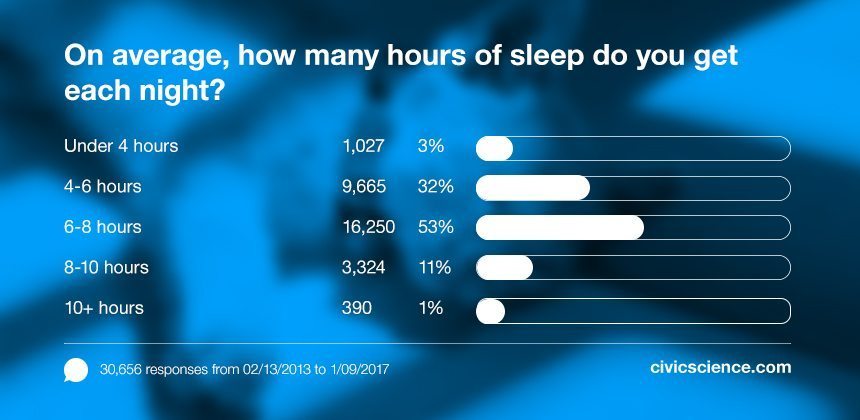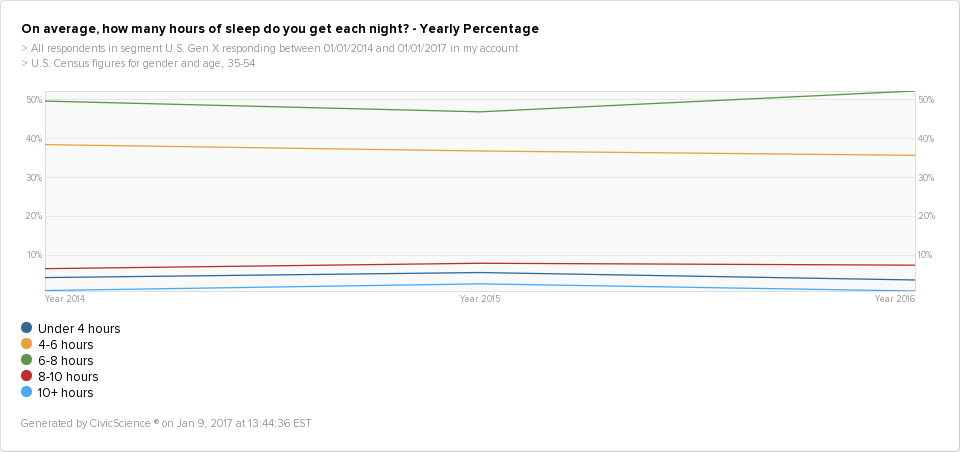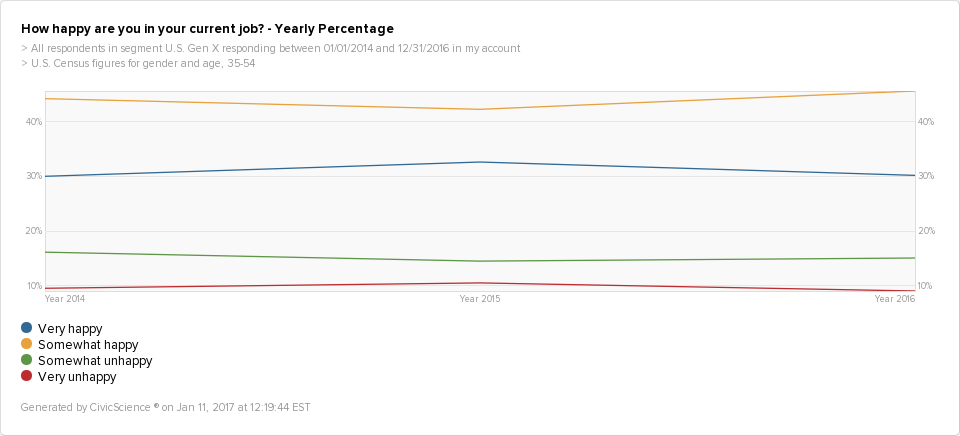Getting over 6 hours of sleep a night is the dream (not to mention medically healthy), but for tons of people it’s just that – a dream. For others, this sacred sleep threshold is somehow a possibility. Here’s what I mean:
As you can see, the majority of adults get between 6-8 hours of sleep each night, with 4-6 hours coming in second. Interesting, but not life-altering. When I dug deeper, however, I found that those who sleep 6-8 hours each night is on the rise among one particular age group: Gen X (ages 35-54). Here is how their sleep behavior has changed over time:
As you might be able to notice, everything is pretty much stagnant except for the line representing 4-6 hours and 6-8 hours. Though the number of Gen Xers who sleep 6-8 hours each night had previously been on the decline, this is the first year since 2014 where it has gone on the rise instead.
In 2015, 47% of Gen Xers said they got 6-8 hours of sleep each night, while that number at the at the end of 2016 was 52%. There are about the same amount of Gen Xers who sleep for over 8 hours a night – which is not a lot.
Why Is this important?
The National Sleep Foundation recommends that adults get between 7 to 9 hours of sleep each night. With this noticeable pivot, more Gen Xers seem to be in line with that recommended sleep dosage – which is a great thing for them and for the people who work with them! It’s no fun being around the sleep-deprived, after all…
Could this signal a larger trend? Those between 35 and 54 years old have it rough. Balancing work and family life is not easy, and as we’ve seen, sleep patterns in the past seemed to reflect that. But with this uptick in those who get 6-8 hours of sleep each night, does this signify that Gen Xers are having an easier time, and finally catching a break? Are they now able to spend less time working and more time relaxing? My optimistic side hopes so. Our Economic Sentiment Index has shown a significant rise in consumer confidence as of late, which perhaps all ties together. In addition, take a look at this trending graph surrounding job happiness among Gen Xers:
There are three trends I notice here. First, Gen Xers who say they are somewhat happy in their job have increased this year over last by 4%. Second, there has been a slight drop among Gen Xers who say they’re very happy in their current job, but on the flip side, those who say they’re very unhappy in their current job dropped this year over last. All of this seems to confirm that perhaps this increase in sleep comes from less stress, and greater satisfaction at work.
Lastly, it may be a good time for Gen Xers to invest in better sleep products, like mattresses, pillows and a plethora of other new products, now that they can enjoy them more. And the sleep industry – which is massive and continues to grow year over year– may therefore want to focus on these 35 to 54-year-olds who now are getting to rest more than usual.
So, what do you think? Have you been sleeping better over the past year?
Interested in other healthcare insights? Check out our latest findings into the surprising connection between rising healthcare costs and the restaurant industry, and the shaky fate of the latest e-cigarette trend!
And if you want to see more of the cool insights we derive from our Economic Sentiment Index, check out this recent post on the predictable rise of Donald Trump.











